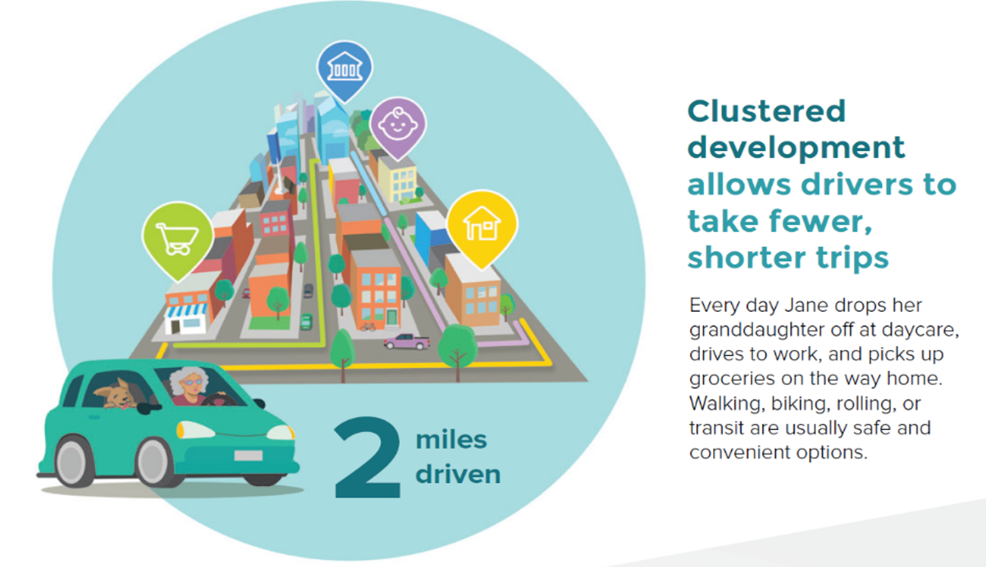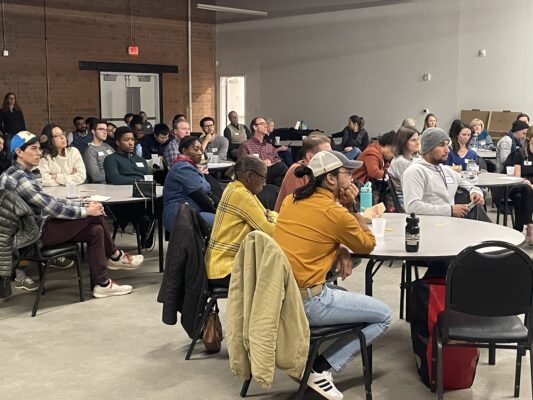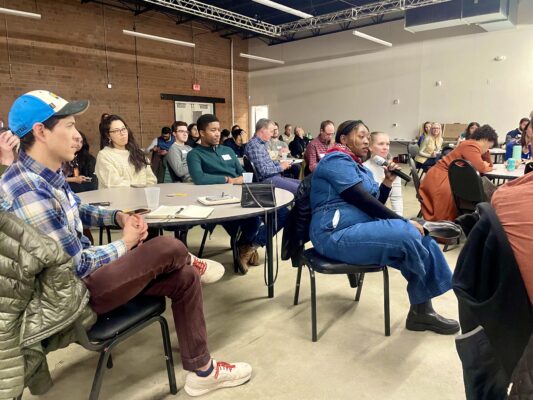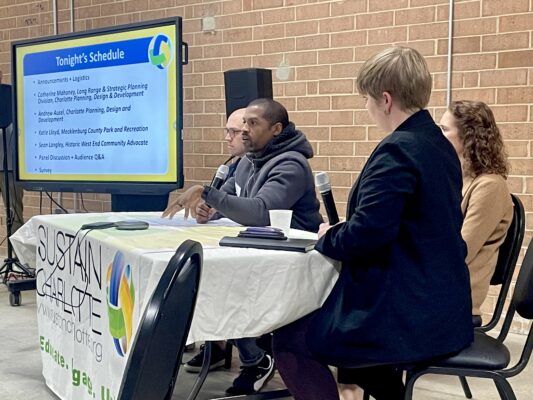2023 Impact 704 Academy Session 2: a recap
More than 40 Charlotte-area residents gathered at Charlotte Art League in northeast Charlotte for the second session of Sustain Charlotte’s Impact 704 Academy on Thursday evening.
This session highlighted land use and how our city is designed and planned.

Director of Engagement and Impact Meg Fencil set the stage defining sprawling development (which requires drivers to take more – and longer – trips) versus clustered development (which allows drivers to take fewer, shorter trips). Charlotte, which is not geographically constrained, is currently a sprawling community, meaning we are largely car-dependent.
Meg then introduced the evening’s speakers to present planning and development in the works to steer the Charlotte area toward more compact, equitable growth in the future.
Catherine Mahoney, from the Long Range & Strategic Planning Division of Charlotte Planning, Design & Development, introduced elements of the Charlotte Future 2040 Comprehensive Plan, a blueprint for Charlotte’s growth.
The 2040 Comprehensive Plan, which was adopted in June 2021, paints a picture of what we want our entire community to offer, including equitable access to housing choices, job opportunities, and daily goods and services, while reducing impact to the environment as much as possible.
She explained that the Community Area Planning phase is currently underway. This guidance will identify the right types and forms of development, mobility choices, and open space amenities that residents across 14 community planning areas have identified during workshops over the course of 2023.

Credit: Lauren Sawyers
These plans will be used by city leaders, staff members and developers to inform decision-making in the future, ensuring we grow the way residents want to.
The next phases of this work will ensure designations within a specific geography address the community’s greatest needs, which means balancing priorities, confirming the vision of increasing access and reducing impacts, and enhancing activity centers.
A revised map will be released in February 2024 and the next step will be to develop an implementation strategy to inform the ways the Comprehensive 2040 Plan can be put into action in the next 5-, 10-, and 15-year periods.
Next, Andrew Ausel, with Charlotte Planning, Design and Development, talked about the Charlotte Unified Development Ordinance (UDO), a city-wide effort to update regulations that guide Charlotte’s growth and development. He spoke about mapping elements, place types and zoning map changes. The UDO is designed to work in concert with the 2040 Comprehensive Plan, bringing the vision of the plan and resident input to life.
Finally, Katie Lloyd, with Mecklenburg County Park and Recreation, gave an overview of the benefits of greenways, including environmental impacts and recreational amenities. After providing a brief history of greenways in the Charlotte area, she talked about the challenges of land acquisition, permitting and budget constraints.
She gave an overview of the current greenway network – built, under construction, in the planning phase and under renovation – totaling 117 miles. The greenway network plan calls for 344 miles of trail.

Credit: Lauren Sawyers
Following the presentation, participants were invited to ask questions of the panelists, which included the three speakers and Sean Langley, McCrory Heights neighborhood resident, Historic West End Community Advocate, and champion for greenway access.
The evening wrapped up with a discussion among participants about ways to advocate for change, followed by time for networking and conversation.

Credit: Lauren Sawyers
We hope you’ll join us for the last session next Thursday, December 14 when we will dive into transportation systems and the critical role they play in land use and smart growth decisions. Staff from Charlotte Department of Transportation and CATS will both give presentations followed by a panel discussion and Q&A.
Thanks for reading!
As a nonprofit, community support is essential for us to keep doing what we do — including providing free articles like this. If you found this article helpful, please consider supporting Sustain Charlotte.
Want to stay in the loop? Subscribe to our weekly newsletter and follow us on Instagram, Facebook, and Twitter.
